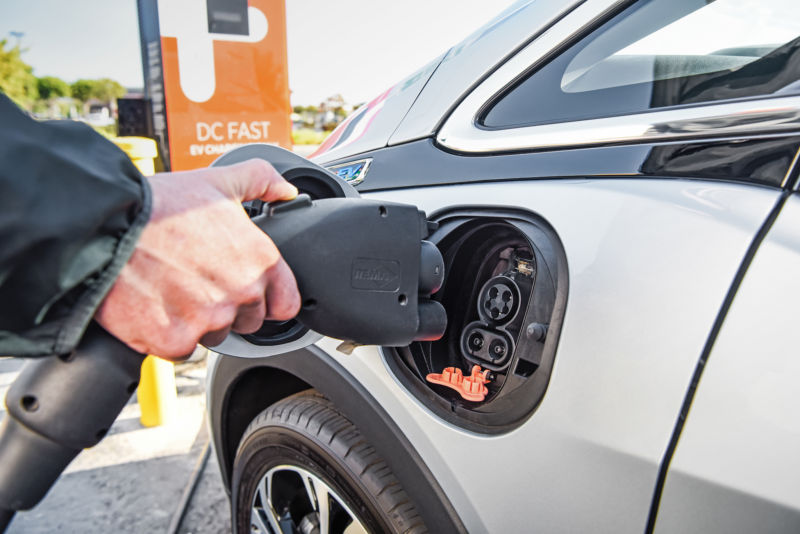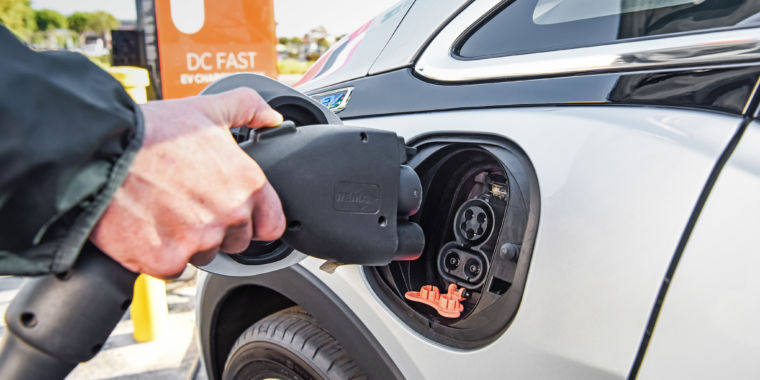
It took an act of Congress and $7.5 billion in federal funding, but more than 50 of the nation’s power companies are ready to build a coast-to-coast fast-charging network for electric vehicles.
The proposal so far is light on details. Members of the National Electric Highway Coalition say they serve nearly 120 million customers across 47 states and the District of Columbia. The coalition hasn’t said how many fast chargers it will be installing, but the companies said they would focus first on gaps in existing fast-charging networks along interstate highways.
The group is “committed to investing in and providing the charging infrastructure necessary to facilitate electric vehicle growth and to helping alleviate any remaining customer range anxiety,” said Tom Kuhn, president of the Edison Electric Institute, which helped build the coalition.
“By merging and expanding the existing efforts underway to build fast charging infrastructure along major travel corridors, we are building a foundational EV charging network that will help to encourage more customers to purchase an electric vehicle,” he said in a statement.
The announcement’s accompanying low-res map has strong “MapQuest circa 2003” vibes, but if you squint hard enough, you can imagine how the group would begin to bridge gaps in existing networks. The US Department of Energy’s EV charging map shows that states in the Midwest and Intermountain West have a paucity of DC fast chargers.
Though the new coalition itself has gaps that more or less run from North Dakota down to New Mexico, it has a strong presence in states where fast chargers remain scarce, like Indiana, Iowa, Illinois, and Wisconsin. Southern states get better coverage, too, including Tennessee and the northern halves of Mississippi and Alabama. West Virginia and Western Pennsylvania also stand to benefit.
The Biden administration has made EV charging infrastructure a key plank in its infrastructure plans, hoping to build 500,000 fast chargers by 2030. To participate, many utilities will need to get the go-ahead from regulators, but the EEI says that over 50 have already received approval for $3 billion worth of EV-related projects.
